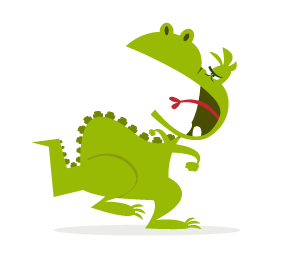Almost all of us listen to music. We listen at home, while working, on the subway, while driving, while running. Yet many of us don't think of music as much more than entertainment. Did you know that you can use music as a tool? With the right music, you can increase effectiveness, create better stuff more easily, get into your creative zone quickly and kick-start a productive day. Add music to your workflow for better results.
This isn't a recent development inspired by the iPod generation. People have been using music as a tool for thousands of years — ever since humans started hitting sticks against rocks. Indigenous peoples used music in rituals and ceremonies, drummers prepared warriors for battles, and significant life events (like weddings and funerals) are still marked with special music.

(Image by renneville)
So, how do you actually use music to increase creativity, productivity and effectiveness? Let's consider a couple of ways of adding music to your workflow.
Get Into The Zone
Music has a strong influence on mood. Just try listening to some fast-paced energetic music while relaxing, or try getting pumped up with chill ambient soundscapes. It just doesn't work. So, when you need to create something, play appropriate music to quickly get in the zone.
Different kinds of music complement different creative tasks:
- Listen to airy and melodic music to design something that needs to feel light and warm.
- Dark and industrial graphics? Put on some heavier music.
- Futuristic and exciting visuals? Play some energizing, progressive electronic music.
It's like role-playing. The background music is your theme song, and you're acting out the role. Each task to accomplish, each project you work on, becomes the mission of your "character."
Get Energized and Get Focused
The human body naturally moves to rhythm. Whenever you hear a beat, you react to it subconsciously. Notice how people tap their feet or snap their fingers to whatever music is playing around them? You don't need a sports drink or motivational coach to get going: upbeat music will energize you.
Of course, what counts as "energetic music" differs from person to person. Fast-paced rhythms and uplifting melodies work for many, and laid-back beats and airy vibes do it for others. For some, it's heavy and dark tunes. Whatever makes you feel like doing things, that's your energetic music.
So, to start with a bang, get motivated for a task or simply go for an invigorating run, listen to music that energizes you. Listen to whatever gets you excited in a "grab life by the throat and get big things done" way.
When it's too quiet, your mind can wander. You start paying attention to every little sound and get sidetracked thinking about random things. Playing music of a consistent style in the background helps you stay focused and reigns in your wandering mind.

(Image by williambrawley)
Even if you're not paying attention to the music, a steady rhythm induces a meditative state of mind: you focus on the task at hand because you're subconsciously being carried along by the music. There are no inconsistent noises to distract you or hinder your progress. Think of it like white noise (like rustling trees or rolling waves). Consistent, even ambient sound helps you working consistently. Style- and vibe-specific DJ mixes, as well as "smart" playlists, can be great for this. An example of this are online radio stations Pandora, Grooveshark and Last.FM.
Background music doesn't help everyone focus. For some, it can be a distraction; some work better in silence. And if that works well for you, there's no need to stop. But if you find yourself getting distracted from time to time, give it a shot.
Next time you lose focus, put on some music and see how the next hour turns out. There's a good chance you'll be more focused and productive.
When To Turn Off The Music
As the saying goes, one can have too much of a good thing. As much as music helps you to work, is there a time to turn it off?

(Image by odreiuqzide)
1. Ear Fatigue
This is common sense: turn off the music if you start feeling ear fatigue. An aching head or throbbing ears will obviously distract you from work. Before you roll your eyes, consider that this is actually a common problem, especially for those who use headphones. After a few hours, non-stop music will tire your ears. Just as you should take frequent breaks to stretch, move and look around, so should you give your ears a break.
2. Distraction
Music should be turned off when it starts distracting you. This probably won't happen for a while, especially if you're busy creating. But again, too much of a good thing is bad.
When you start paying more attention to the music than to what you're doing, turn it off for a while. The change of pace will help you refocus, after which you can always put it back on.
What About Shared Space?
Sure, playing music whenever you like is fine if you're a freelancer who works from home or a location-independent person or someone who has their own office. But what if you work in a shared space? Is it a good idea to put music on in the background for everyone? Or is it better to keep the space quiet?
There do not seem to be any strict social conventions, so if a group is working on the same project and they don't require complete silence, play some mood-appropriate music. It might get the creative juices flowing and get everyone into a steady rhythm. After all, the point is to produce coherent, creative results. Working to a soundtrack can help a group gel.
Returning to the analogy of role-playing, a shared musical experience while working can be like group role-playing. Think of your work as a "World of Warcraft" raid, with the right background theme to keep you all on task. A more probable analogy is office decor, which creates a distinct atmosphere of its own. Like furniture and decoration, music can augment a working atmosphere.
Neutral music (i.e. nothing too experimental) won't distract. Of course, the group should decide together; if everyone can agree on a certain niche genre, then so be it.
What Else Does Music Do?
1. Increase Relaxation
Whether you play music while working, you can still use it to enrich your breaks. Music is especially helpful if you're feeling stressed out and need a moment to relax. Relaxing instantaneously is nearly impossible, probably because shifting focus so quickly is hard. If you've been thinking about one thing, transitioning to something else can take a while.
Music, whether upbeat or tranquil, can facilitate the transition. It's like auditory yoga, except you're not forcing yourself to do anything uncomfortable; the music does the work for you.
2. Improve Presentations
Just as appropriate music lends itself to different creative atmospheres, it can also influence viewers of your presentations. Choose the right music and they'll be interested, excited, even ready to buy.
A good presentation might use music at key moments. Even a tacky ’80s hit could work: it could trigger nostalgia, thus winning over your client. The right musical "moment" could lead to viewers purchasing or investing in your product, following your guidelines or just paying closer attention.
If you want prospective clients to take interest in your service, elicit their enthusiasm by playing music with an exciting build-up. To drive home a point or highlight a feature or benefit, sync a track so that the musical climax occurs at that point in the presentation.

(Image by tobiastoft)
Basically, decide what you want to achieve with your presentation. What is the viewers' call to action? What do you want them to do afterward? Add music that suits the content of your presentation and that complements the emotional journey you want viewers to take. Music in a presentation elicits emotional investment, and you'll probably get better results.
Music Creates Mood
Clearly, music isn't just entertainment. The right kind of music is a tool that improves your day — and not just your mood: it can increase and sustain your creativity, productivity and effectiveness.
Remember these three reasons to add music to your workflow: to get into your creative zone faster, to stay energized and motivated and to get more important stuff done in less time.
 (al)
(al)



